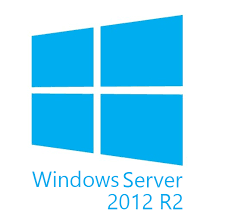Features of Exchange 2010 (New functionality of Exchange server 2010)
Exchange server 2010 have many features compare to its earlier version Exchange server 2007 and Exchange 2003, some of the features are listed below
Exchange server 2010 feature list
1. CCR (Cluster continuous Replication) and SCR (Standby Continuous Replication) has been combined and presented a new feature call Database Availability Groups (DAG), using this feature you can easily provide high availability, disaster recovery, and backup solution for messaging environment
2. No need to install and configure separate windows cluster for Exchange 2010 it’s in built
3. Mailbox databases is managed in origination level not in server level, Database Availability Groups been used to group databases for high availability
4. Now RAID not require to configure redundancy and fault tolerance for Exchange 2010
5. Even it’s not mandatory to backup the exchange server if you are using DAG
6. Disk performance change in Exchange 2010, architecture change in Exchange 2010, Exchange server 2010 able to provide 70% more performance compare to Exchange 2007, Microsoft Exchange Server 2007 users require 0.3 IOPS (IO operations per second) of disk performance, For Exchange Server 2010, the IOPS per user is now 0.1—70 percent less than Exchange 2007. This results in better Exchange performance for users
7. Exchange Server 2010 runs on Windows Server 2008 with Service Pack 2 or later and Windows Server 2008 R2
8. Only available for 64bit version, obviously windows server 2008sp2 and R2 Only available for 64bit version
9. Forefront Security, it’s a real-time and scheduled scanning for viruses and spyware
10. Like Exchange 2007 it also uses the Active Directory routing topology to determine how to route messages within the organization (NO routing group connecter required)
11. Support offline and online mailbox moves.( users can continue to access their email account during the move online mailbox moves )
12. Resource mail box for room’s and equipment’s
13. Archive mailbox, An archive mailbox is used to store a user’s old messages so that they can able to use this in OWA (outlook web access )
14. Forwarding mailbox is a mailbox that can receive mail and forward it off-site
15. Linked mailbox, a linked mailbox is a mailbox for a user from a separate from other trusted forest.
16. Voice mail transcription, voice message has been translated to text and been send through mail
17. Role base access control, it’s easy to delegate the exchange access
18. More tools for administration and troubleshooting
19. Fully integrated with Windows PowerShell
20. Client access server role used for both OWA and MAPI client on Exchange server 2010, so all the client should route the message through client access server, in Exchange 2007 MAPI clients directly connected to mailbox server.
Related Articles
Features Removed from the Exchange 2010
Active Directory 2008 features
High capacity and low cost disks for Exhcnage 2010 server
Disk performance change in Exchange 2010
Schema version for Exchange 2010
Schema Version for Windows 2008 R2



